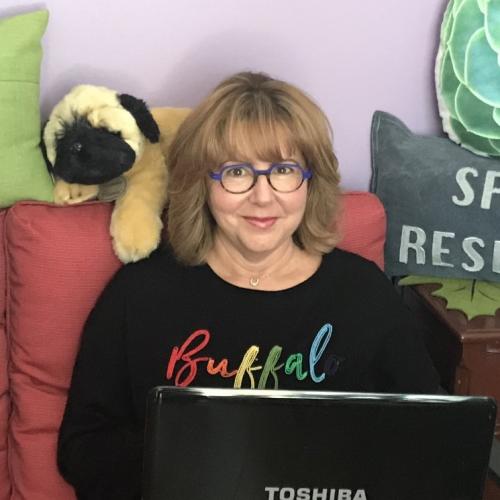There I was in my gynecologist’s office getting mentally prepared for my annual checkup—the size of the room so small I could outstretch my arms and touch both walls. No wonder I felt slightly claustrophobic and uncomfortable. I mean honestly, it’s not where anyone wants to be, but I tried to muster up all my courage to calm down and feel at ease while I waited for the door to swing open and my doctor to appear. He stepped into the room and with a quick parley into pleasantries of how I am, he set his instruments down and pulled his stool closer to the stirrups. Without missing a beat, he told me that I was tense and should relax because my whole body was “oozing” with nervous energy. He then questioned whether I’m always this “neurotic.” His comments suddenly left me overcome with emotion. While trying to not add “emotional” to the already preconceived pile of who he thinks I am, I decided to take some deep, zen breaths instead.
Pigeonholed
For as far back as I can remember, people have been trying to label me. When I was in elementary school my teachers would leave comments on my report card that I was too “shy” and “timid” and needed to participate more in conversations and discussions. Others would inform my parents that while I was a good student overall, listened and took direction well, but my “sullen” disposition could use improvement. I had to ask my parents what that meant and when they told me, I was confused and hurt.
I did not exhibit the type of behaviour that is attributed to someone who is sullen. Sure, I agreed that I was more introverted, but I was a happy albeit sensitive kid—certainly not joyless. I hated that this could be how I was portrayed. While I was not a loud rambunctious kid, I had my core small group of friends, and admittedly used kindness and self-deprecating humour to garner friends—something I’ve maintained to this day.
As I got older and entered university, I had to learn to put myself out there, be more outspoken, and became much more aware of my outer appearance. I wore bright pink lipstick and neon-colored clothes to offset any chance that people would think I exude any kind of moroseness. I didn’t want to be what people thought I used to be. I knew I was not those things, but the personal label of “sullen” had literally sullied any attempt I made to shake that off—it attached itself to me, very much like a viscid label.
Numerous research studies have cited examples of the damaging effects of labeling. These so-called labels are ingrained in popular culture: a group that dons black clothes are “goth,” anyone who is an athlete or excels at sports is a “jock,” and of course even before The Big Bang Theory, anyone who was smart and enjoyed learning was a “nerd.” It’s not rocket science to know that these prefabricated, confining boxes lead us to believe that we are what society thinks we are.
Shattering the Box
When I left my doctor’s office, his assumption that I was neurotic was a real trigger for me. I am soft-spoken and admittedly reserved—any hospital setting or medical clinic causes me to feel shaky and nervous. But I am by no means Woody Allen neurotic. I wasn’t pacing the floor of this doctor’s office screaming that I have a brain tumor (a great movie, by the way, circa 1986: Hannah and Her Sisters). I just presented normal human nerves and anxiety, just as anyone who would be experiencing an exam. My behavior was a reaction to an uncomfortable situation. My so-called “nervous energy” was a momentary lapse due to a specific situation, not a reason to be defined as neurotic.
Our use of labels combined with our own negative self-talk continues to fuel an already fragile human condition and can contribute to physical symptoms of depression to anxiety. I have had to learn to be more mindful of my own self-sabotaging labels. My favorite to use, even as a joke, is “I’m such an idiot!” I have been mindful of the negative labels I’ve attached to myself in the past, like “sullen” and “timid” and am trying to embrace who I was and who I have grown into, even with the occasional neurotic tendencies in full view.
One word cannot define who I am as a person. If I don’t like the way I am characterized, I can change it because I want to, not to please anyone else. This is all easier said than done, but the takeaway is not to allow negative labels to burrow so deep inside your head that you start to believe them. If negative labels can stick, then so can beautiful, positive ones. In the words of the famous tennis player, Martina Navratilova, “Labels are for filing. Labels are for clothing. Labels are not for people.”
Need to get something off your chest?
Book a free phone or Skype vent session today.
-

Wendy is a graduate and former staff member of McGill University. She hopes to one day open her own reflexology practice at home to help people find a sense of calm and relaxation.



